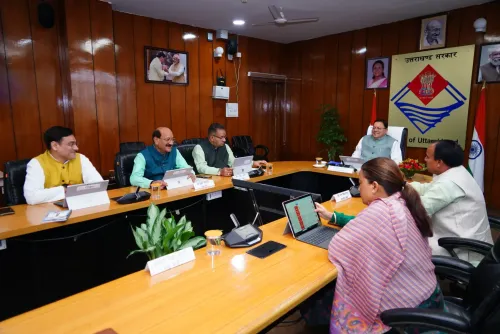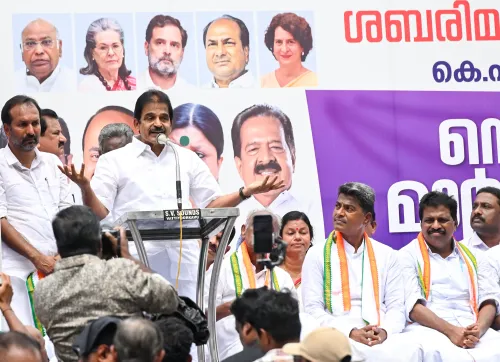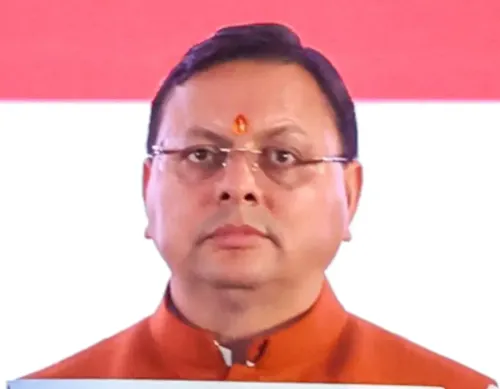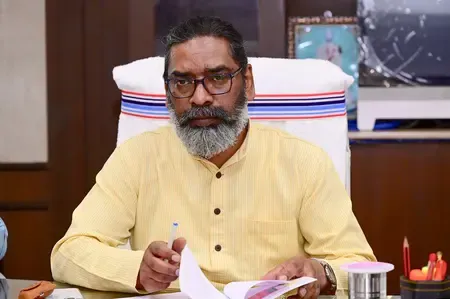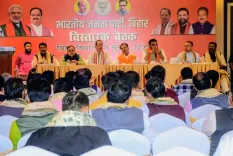Complete Prohibition on Liquor Sales in MP's Sacred Cities Starting April 1
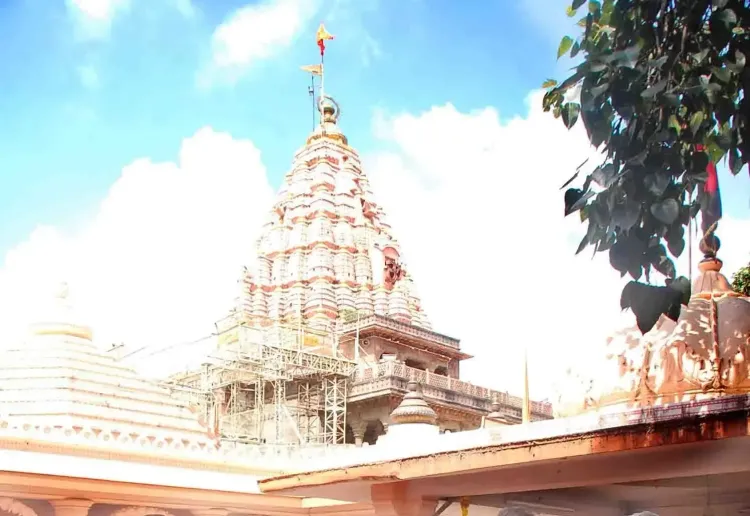
Synopsis
Key Takeaways
- Complete prohibition on liquor sales in 19 sacred cities.
- Offering liquor to Lord Kaal Bhairav remains unchanged.
- Official liquor counters were established for fair pricing.
- Devotees participate daily in the ritual.
- One-third of the liquor is returned as Prasad.
Bhopal, March 31 (NationPress) A comprehensive prohibition on the sale of liquor within the municipal boundaries of 19 sacred cities in Madhya Pradesh, including the revered town of Ujjain, is set to take effect from Tuesday (April 1).
Despite this extensive ban, the long-standing tradition of offering liquor to “Lord Kaal Bhairav” remains “unchanged,” maintaining a distinctive facet of local religious practices.
Adjacent to the Lord Kaal Bhairav temple, vendors continue to sell baskets filled with traditional offerings such as coconuts, flowers, and bottles of liquor—an indispensable component of the worship rituals for the faithful.
Back in 2015, the State Government established official liquor counters near the temple to guarantee fair pricing and protect worshippers from unauthorized sellers.
These counters provide both locally-made and imported liquor for the offerings.
“For generations, devotees have revered Lord Kaal Bhairav by presenting liquor as an offering, an act deeply connected to the city’s spiritual essence. To alleviate worries regarding the potential end of this revered custom, the temple management committee will now supervise and ensure the availability of liquor for the deity’s worship,” a senior official in the Excise Department conveyed to IANS.
The two liquor counters previously located near the temple will cease operations, as they fall under the municipal ban.
“This prohibition highlights the government’s dedication to safeguarding the integrity of sacred cities while enabling traditions to flourish,” the senior excise official stated.
Every day, hundreds of devotees flock to the temple to engage in this distinctive ritual, where they present liquor bottles to the priest.
The priest then pours the liquor into a saucer, offers prayers, and places the saucer near the lips of the deity’s idol, which features a slit.
As the saucer is tilted, the liquid vanishes, symbolizing the deity's acceptance.
Approximately one-third of the liquor is returned to worshippers as sacred Prasad, rendering the experience both spiritual and memorable.
The state’s newly implemented excise policy, led by Chief Minister Dr. Mohan Yadav, mandates the closure of liquor outlets in hallowed areas such as Ujjain, Omkareshwar, Maheshwar, Mandleshwar, Orchha, Maihar, Chitrakoot, Datia, and various others.
The ban on alcohol sales aims to preserve the sanctity of these towns, with no new licenses being issued from April 1.
Ujjain Collector Neeraj Kumar Singh had previously expressed a desire to retain the liquor shops near the temple but was assured that the temple committee would make alternative arrangements to uphold the ritual.

